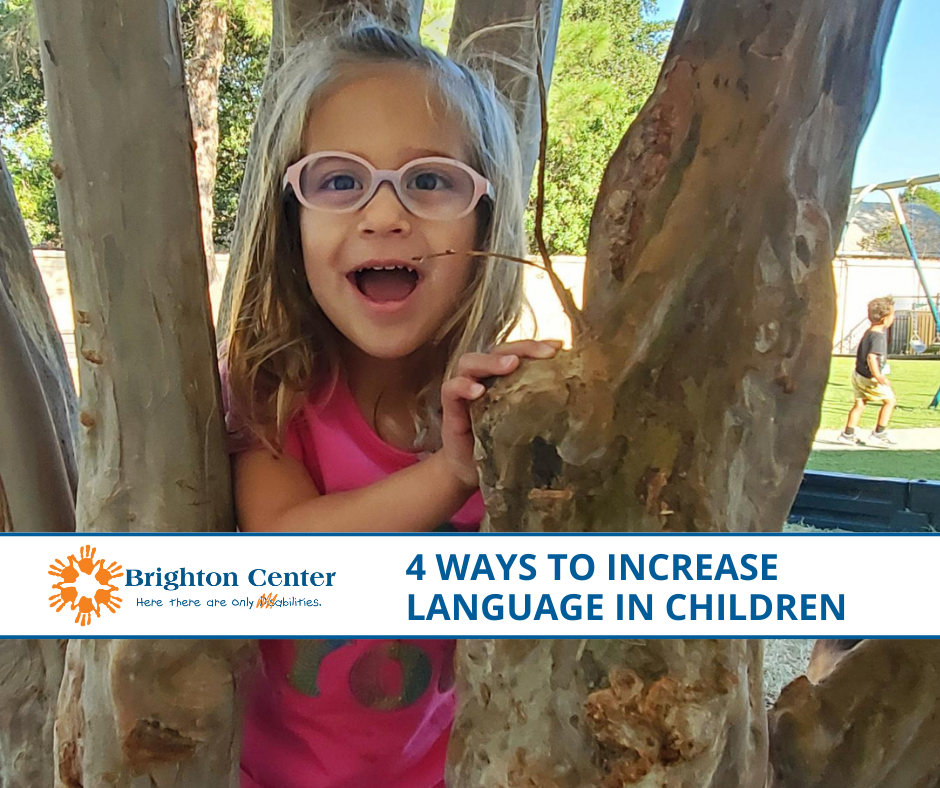by Reyna Williams, Brighton Pediatric Speech Language Pathologist
When our children first learn to speak, they often start with just single words. As we watch them grow, their vocabulary increases, and they start to put the pieces of the language puzzle together. Before you know it, that tiny baby who would simply “coo” or “goo” is telling you exactly how they want their dinner prepared. Parents often ask us at Brighton what they can do at home to help expand their child’s vocabulary. As parents there are a few simple things we can do at home to help them along this journey.
Ways to Expand Your Child’s Vocabulary
- Self-Talk: As silly as it may sound, one of the best ways to model language is to narrate your daily routines. Using an animated and excited voice to increase engagement, talk through your actions and routines. At home this can look something like, “What do I need to wash the dishes? First, I need water then I will put soap in the water. Oh look! Here’s the soap. Let’s pour it in.” It is so important that children be exposed to thousands and thousands of words to increase their vocabulary.
- Read books: Pick a book to read with your child. Books expose our children to vocabulary that may not always be present in their everyday lives. Don’t be afraid to read the same book multiple times! After a few times of reading the story, you can have your child attempt to tell you the story on their own. Let them use the pictures to guide them.
- 3:1 Rule: Sometimes as a parent you may find yourself asking your child a lot of questions (e.g., – how was your day?, Do you want to eat?, etc.) This can sometimes limit spontaneous language. Instead of constantly asking questions, take some time to add in 3 comments for every question you ask. (e.g., Today at work I had pizza for lunch. The pizza was delicious! It even had pepperoni on it. What did you have for lunch?).
- + 1 routine: Another way to increase language when a child is first learning is to model a phrase that is just one word longer than what your child says. For example, if you’re child says “car”, you can say “car go”. Or if your child says “me up”, you can say “pick me up”. The goal of this strategy is to add one more word to your child’s communication to demonstrate language that is just slightly above their current level.















